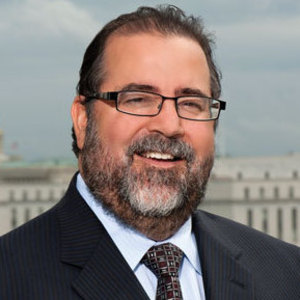HWRT offering pre-blended E15 at terminals

August 20, 2016
BY Bob Dinneen
A few months ago, a game changer rocked the gasoline retailer world when HWRT Oil Co. LLC announced it would become the first company in the United States to offer pre-blended E15 at the terminal, beginning Sept. 16.
Specifically, HWRT will include E15 in its slate of product offerings at terminals in Hartford, Illinois; North Little Rock, Arkansas; Norris City, Illinois; and Seymour, Indiana. The Renewable Fuels Association has been working with HWRT on a number of issues related to offering E15 at the terminal, including regulatory compliance, participation in the U.S. EPA’s required fuel survey and adoption of RFA’s Misfueling Mitigation Plan.
So, why is this a game changer? To date, retailers across the country interested in offering E15 have not had access to the fuel blend at their local fuel terminals. As a result, retailers have offered E15 by diluting a higher ethanol blend such as E85 with regular unleaded, a process that takes additional storage and equipment. This announcement will allow retailers with existing compatible equipment to begin offering E15 immediately to consumers with vehicles manufactured in 2001 or subsequent years, along with all flex-fuel vehicles.
In other words, any marketer, whether it has E85 infrastructure in place or not, now will be able to offer E15 to consumers. That will greatly expand E15’s U.S. footprint, growing the fuel blend’s presence throughout the Midwest and the Southeast.
The Hartford, Illinois, terminal especially is notable as it provides reformulated gasoline with low volatility to the St. Louis market. That means the terminal will have E15 available that meets EPA volatility requirements year-round and retailers served by the terminal will be able to sell E15 all year without interruption.
HWRT plans to eventually expand the E15 offering to 17 terminals where the company holds positions. This means E15 will be offered at terminals in seven states.
This seismic shift is phenomenal news for retailers who want to offer consumers choices at the pump. All gasoline dispensers dating back to the mid-2000s are guaranteed for up to E15 and, if the fuel system is compatible, retailers only may need a labeling change to start offering E15.
Meanwhile, 80 percent of today’s automotive fleet is approved to use E15. A December 2015 analysis by RFA of 2016 model year warranty statements and owner’s manuals shows that auto manufacturers explicitly approve E15 use in more than 70 percent of new vehicles. This is up from 2015, when just over 60 percent of model year 2015 automobiles clearly were approved for E15.
Ultimately, efforts by HWRT and others to offer higher ethanol blends are about offering more consumer choices. Ethanol is the highest-octane, lowest-cost fuel on the planet, and ethanol blends being offered at the pump have been to date cheaper than conventional fuel. Why wouldn’t consumers want to fill up with a fuel that is better for the planet and costs less? It’s a win, win.
The oil industry has kept a near-monopoly at retail stations for far too long. The RFA applauds HWRT’s efforts and we will continue to push for more companies to provide greater consumer choices at the pump.
Author: Bob Dinneen
President and CEO,
Renewable Fuels Association
202-289-3835
Advertisement
Advertisement
Related Stories
The U.S. EPA on July 8 hosted virtual public hearing to gather input on the agency’s recently released proposed rule to set 2026 and 2027 RFS RVOs. Members of the biofuel industry were among those to offer testimony during the event.
The U.S. exported 31,160.5 metric tons of biodiesel and biodiesel blends of B30 and greater in May, according to data released by the USDA Foreign Agricultural Service on July 3. Biodiesel imports were 2,226.2 metric tons for the month.
The USDA’s Risk Management Agency is implementing multiple changes to the Camelina pilot insurance program for the 2026 and succeeding crop years. The changes will expand coverage options and provide greater flexibility for producers.
President Trump on July 4 signed the “One Big Beautiful Bill Act.” The legislation extends and updates the 45Z credit and revives a tax credit benefiting small biodiesel producers but repeals several other bioenergy-related tax incentives.
CARB on June 27 announced amendments to the state’s LCFS regulations will take effect beginning on July 1. The amended regulations were approved by the agency in November 2024, but implementation was delayed due to regulatory clarity issues.
Upcoming Events










